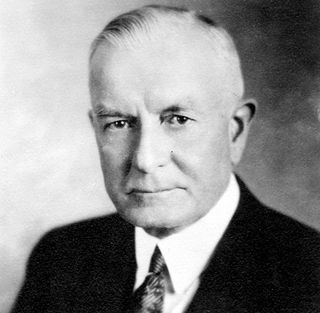A Quote by Robert Fripp
There are no mistakes, save one: the failure to learn from a mistake.
Related Quotes
Here's a memonic device that I feel teaches how we can properly cope with failure. Forget about your failures; don't dwell on past mistakes Anticipate failure; realize that we all make mistakes. Intensity in everything you do; never be a failure for lack of effort. Learn from your mistakes; don't repeat previous errors. Understand why you failed; diagnose your mistakes so as to not repeat them. Respond, don't react to errors; responding corrects mistakes while reacting magnifies them. Elevate your self-concept. It's OK to fail, everyone does; now how are you going to deal with the failure
For every mistake that you learn from you will save thousands of similar mistakes in the future, so if you treat mistakes as learning opportunities that yield rapid improvements you should be excited by them. But if you treat them as bad things, you will make yourself and others miserable, and you won't grow.
You have to have the kind of personality where you're resilient and you can get up and keep moving and learn what there is. What I tell my employees is, 'I want you to make mistakes. If you're not making mistakes, you're not trying hard enough. But, when we make a mistake, let's all study it. Let's all learn from it. After that, we want to make different mistakes. We don't want to keep making the same mistakes.'
I believe that our society's "mistake-phobia" is crippling, a problem that begins in most elementary schools, where we learn to learn what we are taught rather than to form our own goals and to figure out how to achieve them. We are fed with facts and tested and those who make the fewest mistakes are considered to be the smart ones, so we learn that it is embarrassing to not know and to make mistakes. Our education system spends virtually no time on how to learn from mistakes, yet this is critical to real learning.
Mistakes don't scare me or bother me. If I feel like I made the same mistake twice, then I feel like I've really screwed up. But if I make one mistake and learn from it, hey, to me in the game of life it's just as important to know what doesn't work as what does. So I think mistakes are a good thing.
It is one thing to make a mistake, and quite another thing not to admit it. People will forgive mistakes, because mistakes are usually of the mind, mistakes of judgment. But people will not easily forgive the mistakes of the heart, the ill intention, the bad motives, the prideful justifying cover-up of the first mistake.
... I don't think anybody should avoid mistakes. If it is within their nature to make certain mistakes, I think they should make them, make the mistakes and find out what the cost of the mistake is, rather than to constantly keep avoiding it, and never really knowing exactly what the experience of it is, what the cost of it is, you know, and all the other facets of the mistake. I don't think that mistakes are that bad. I think that they should try and not do destructive things, but I don't think that a mistake is that serious a thing that one should be told what to do to avoid it.
Nothing fails like success, because we do not learn anything from it. We only learn from failure, but we do not always learn the right things from failure. If there is a failure of expectations, that is, if the messages that we receive are not the same as those we expected, we can make three possible inferences.



































